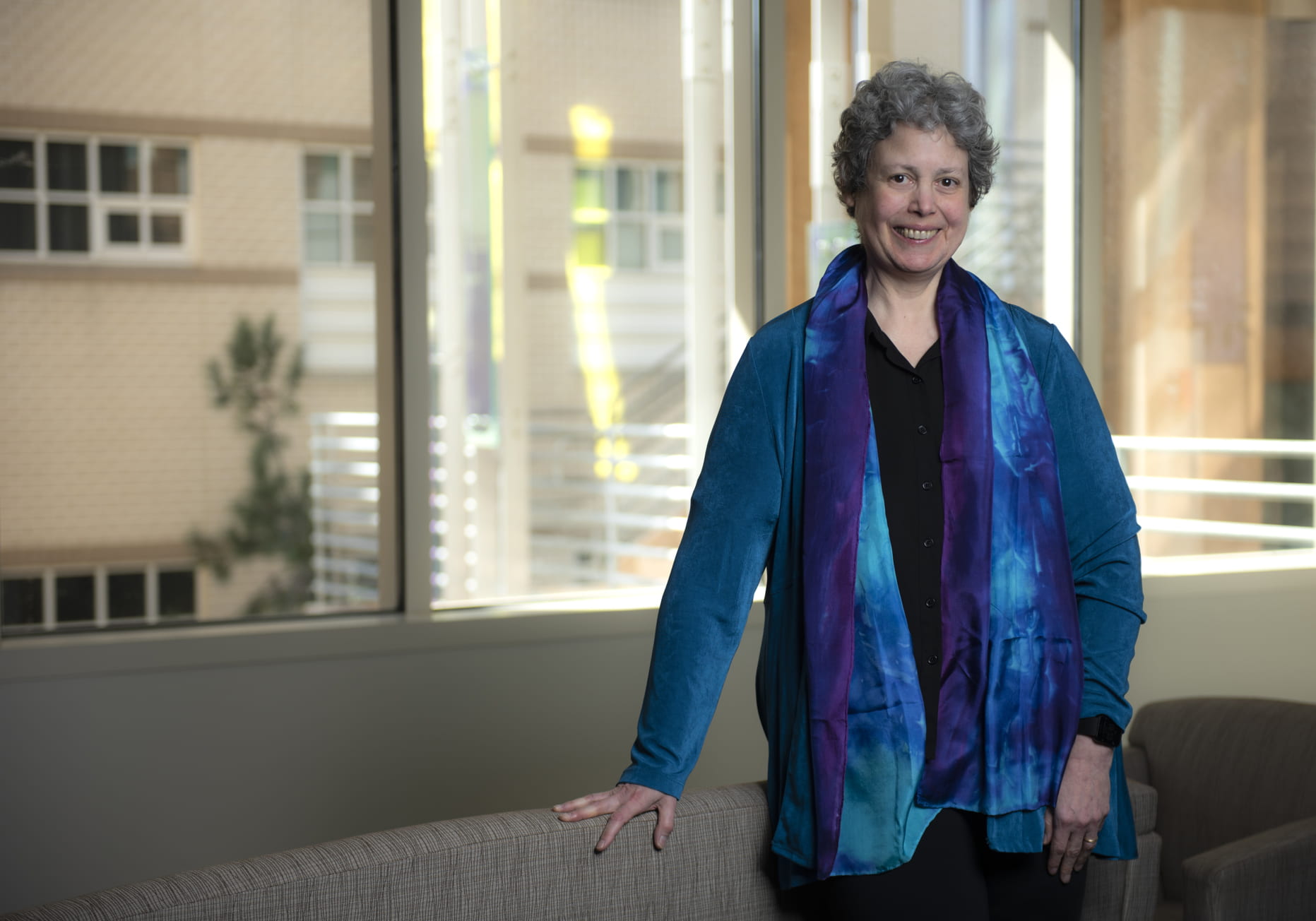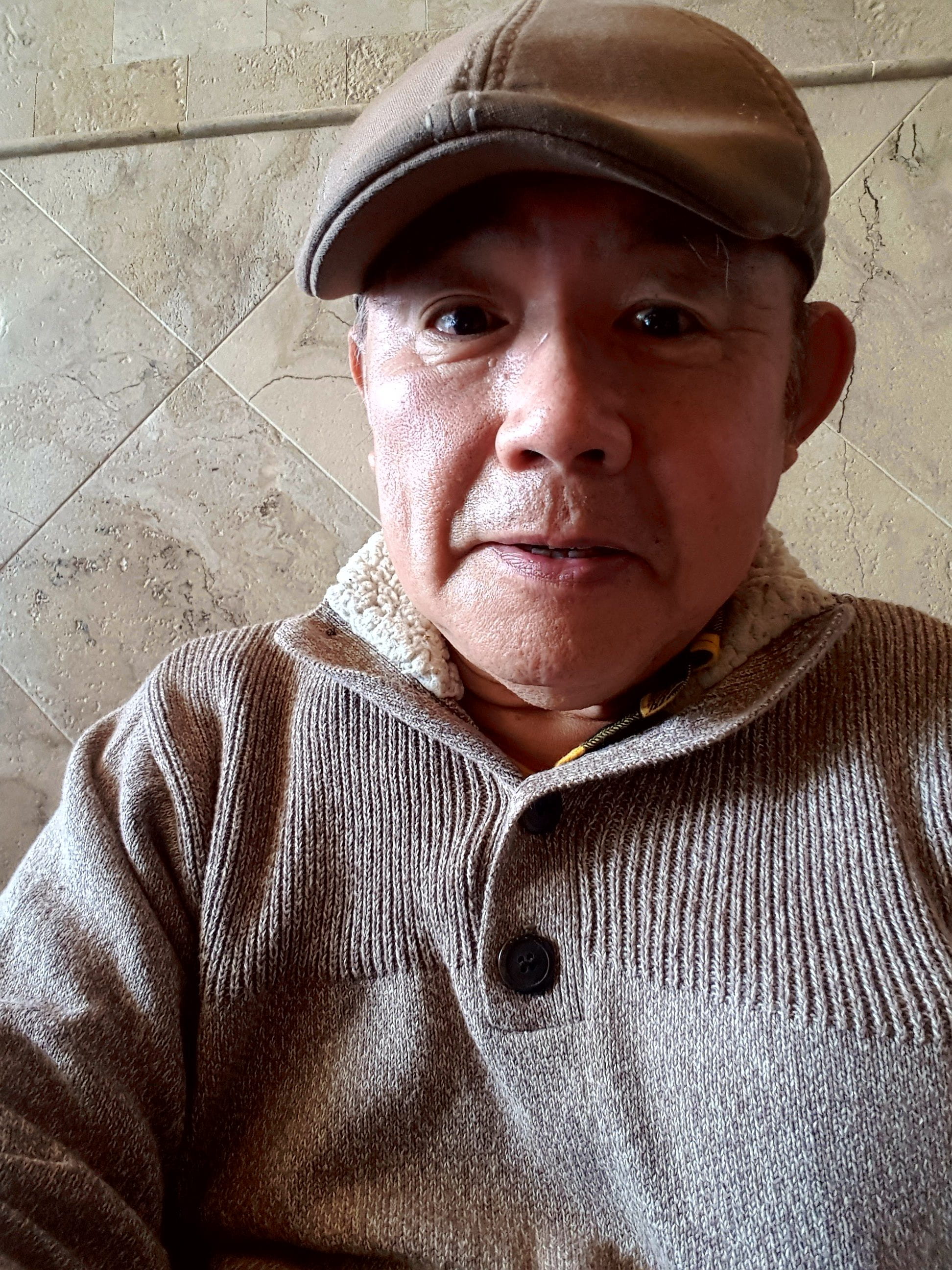Change agent
Newly minted Ph.D. Deborah Lefkowitz is dedicated to solving real-world problems via community-engaged research

Whether making a film about the Holocaust or conducting research on access to breast cancer care, Deborah Lefkowitz, who last month earned a Ph.D. in social ecology at UCI, brings a unique sensibility to her work. Her award-winning documentary “Intervals of Silence: Being Jewish in Germany” explores how Jewish and non-Jewish Germans today relate to the Holocaust. “I wanted to create a space for conversations that might not happen otherwise,” Lefkowitz says. “I’m interested in discovering how people manage difficult situations in their lives.”
“I came to UCI because I wanted to participate in different conversations than I was able to do as a filmmaker,” she adds. “UCI has been an incredibly inviting place, and I’m so grateful for the access and collaboration across disciplines, from anthropology to law to medicine.”
Lefkowitz recently defended her dissertation, “Mapping Breast Cancer Survivorship and the Survivor Institutional Interface,” and received the 2019 graduate student Dean’s Award for Inclusionary Excellence. In announcing the award, Nancy Guerra, dean of the School of Social Ecology, wrote: “[T]he committee was impressed with the efforts she made to include a diverse group of breast cancer survivors as research participants …[drawing] on survivor populations that had previously been significantly underrepresented in cancer and survivorship research.”
Supported by a three-year Ruth L. Kirschstein National Research Service Award from the National Cancer Institute of the National Institutes of Health (F31CA192478), as well as fellowships and grants from the University of California Humanities Research Institute and the UCI Center for Organizational Research, Lefkowitz’s community-engaged research focused on access to and the delivery of breast cancer care in medically underserved and rural areas of Riverside and San Bernardino counties.
As a 25-year resident of the Inland Empire, she’s aware of the difficulties involved in receiving such care during and after treatment in the huge geographic region – four times the size of New Jersey – which is among the poorest in California. Home to nearly 4.5 million people, it has a serious physician shortage and cancer care that’s frequently fragmented across multiple facilities.
“All these characteristics represent formidable challenges to cancer service delivery, especially for residents in the outlying desert communities,” Lefkowitz says. “Having insurance does not address the multiple impediments to access, ranging from the patient’s out-of-pocket costs for treatment to transportation, child care, employment flexibility and availability of support services.”
For her research, she employed a social ecological framework to understand how breast cancer is interconnected with families, healthcare providers, employers, nonprofit organizations, communities and national healthcare policies. Lefkowitz interviewed 82 breast cancer survivors in 27 cities and 84 providers of services such as patient navigation and support groups, financial and transportation assistance, and bilingual interpreting. She also analyzed several hundred database records documenting service interactions between breast cancer survivors and the Cancer Legal Resource Center.
As Lefkowitz explained in a presentation at last fall’s inaugural Health Equity and Diversity Symposium at UCI’s Susan and Henry Samueli College of Health Sciences, all the survivors she interviewed received treatment, but the amount of effort and personal funds expended varied considerably. As one survivor said, “Access does not come easily; you have to work really hard.”
Transportation was a particular challenge in the Inland Empire, especially for those who had to travel more than 100 miles for treatment, did not own or have access to a car, or couldn’t afford a $27 monthly bus pass, as one interviewee reported. For those with very limited financial and social resources, traveling even a few miles for treatment presented significant difficulty. But transportation was only one of many obstacles women confronted.
Although providers realize that financial and social resources directly affect patients’ ability to access care, these issues are not always acknowledged as part of healthcare interactions. “We don’t want to ask the patient whether there’s an economic burden,” said one oncology professional interviewed. “We want to leave that up to the social workers – and social workers may or may not be involved.”
Ultimately, Lefkowitz found that a multitude of people both within and beyond healthcare facilities take part in delivering care. “We should address healthcare access as a nexus of interconnections, rather than merely as a patient-physician relationship,” she says. “This allows us to see its complexity and fragility but also enables us to identify points where innovative interventions could yield significant change.”
Lefkowitz says she was “overwhelmed” when she received a standing ovation from the audience of 50-plus to her dissertation defense and was lauded by Kirk Williams, director of the social ecology Ph.D. program, for her “sincerity of commitment to making a difference for breast cancer survivors.”
Moving beyond the doctorate, Lefkowitz is excited that she’s been selected to participate with the Cancer Legal Resource Center, in novel training through the UC’s California Breast Cancer Research Program that supports community-academic research partnerships focused on breast cancer causes and disparities in California.
“I was thrilled to be in UCI’s social ecology program because it’s directed toward problem-solving in the real world and has been a perfect match for me,” Lefkowitz says. “I’m very excited that my research has generated ideas and projects beyond my dissertation so that I can continue to work with community partners to come up with creative solutions on how we can connect to deliver breast cancer care in a medically underserved region.”


